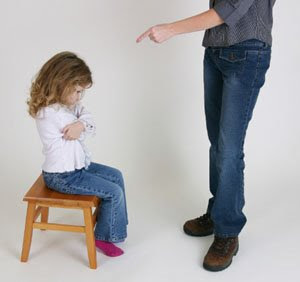 Two years tries to touch something that I told you a hundred times is off-limits. Ten-year-old goes beyond the perimeters that you have set out for it in the neighborhood. At sixteen years old, remains half an hour past his curfew.
Two years tries to touch something that I told you a hundred times is off-limits. Ten-year-old goes beyond the perimeters that you have set out for it in the neighborhood. At sixteen years old, remains half an hour past his curfew.
No matter what age your children are, that the limits set for them are required to be tested. As a parent, the reasons for these restrictions are evident. You do not want your child to touch a wall socket, as it might hurt. You prohibit its ten years of age to leave the district because of the street that lies beyond. You want your sixteen years of the home at a certain time of night because of the dangers.
Despite its protestations to the contrary, do not set limits because we are ogres and do not want our children to have fun. Simply, we are trying to protect them. That's what parents are loving.
Here are three things to keep in mind when setting limits for their children:
1. Create borders. This sounds like a non-simple, but there are many parents who never officially set limits. Then, when your child does something that their parents do not agree, the child gets into trouble, but is left scratching his head, wondering what he did wrong. Children need specific. Not only, "Be home at dusk," but "home by ten."
It may be necessary to make a list of their specific families of the borders and put it in a prominent place for your child can refer to it, if necessary, or at least to serve as a reminder if it "forgets" standards.
2. Lay out the consequences. As important as fixing the limits is to explain what will be the consequences for crossing. If children do not know beforehand what will happen if they ignore the boundaries, it is more likely that it will review and take a chance that the result will not be as bad.
And then, if and when they do those who cross the borders, he was not stopped stressing the matter. You will know exactly what to do.
3. The limits are intended to expand. As your child grows, borders too. Probably the child is confined to follow her yard, but his seven-year-old can afford his bike ride home by three lengths from the street. Ten years old may be free to travel on his bike around the block, and it is possible that your well-twelve years of age, why walk to a friend's house, several blocks away. Take his age, and each child into consideration individual responsibility, coupled with its history of staying within the boundaries.
Research shows that although throw tantrums and fits with regard to the limits that I do not believe are fair, children who are not given the guidelines and restrictions while growing up are more likely to have behavior problems. Children simply are not wired to handle the responsibility that comes with freedom.
God loves us and sets many of the guidelines and restrictions in His Word. Staying within the boundaries that God has established for us provides a wonderful example to our children. Furthermore, constantly setting limits and sticking to them will ensure that our children will one day realize that we are not trying to keep anything from them but in fact there is something to them. We are giving them the love and security that are required when finally in a position to spread their wings and fly into the world on their own.
Mar 30, 2008
Setting Boundaries For Your Kids
Subscribe to:
Post Comments (Atom)


0 comments:
Post a Comment